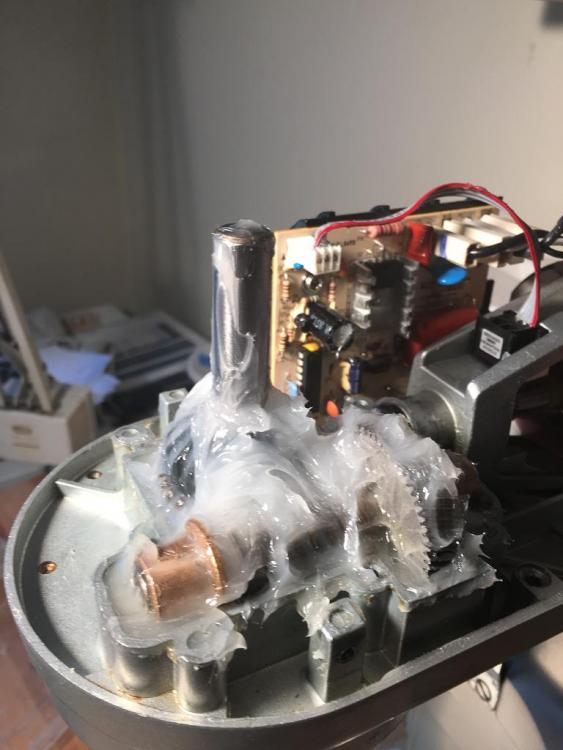My rebuilt mixer has survived its first few uses, and does seem to run quieter and cooler with the new grease. I think switching to the synthetic grease is a significant upgrade. As is realizing that KA's claim of "lubricated for life" is an insult to the intelligence of every engineer or semi-sentient tinkerer. If you use a mixer hard, you should relube it every few years or so. You might get lucky and get one that survives decades of abuse, but it's not the best bet.
One issue with KA mixers is that the transmission is built around a worm gear. These allow huge changes in speed and torque in a compact arrangement. But they introduce a lot of friction, which means added stress and heat for both transmission and motor. I found one study on worm gears that showed an upgrade from mineral oil-based grease (like KA's) to synthetic grease increased efficiency by 15%. This means a reduction in heat produced by both the transmission and the motor.
Other benefits include consistent lubrication over a wide temperature range, and much improved resistance to grease breakdown from heat or oxygen or water. No more black goop dripping into the mixer bowl.
Unrelated: be very careful not to strip any of the machine screw holes that are threaded into the shell of the mixer, that attach the transmission cover. Some people have done this and had their weekends ruined.
Fresh guts with fresh synthetic grease.






